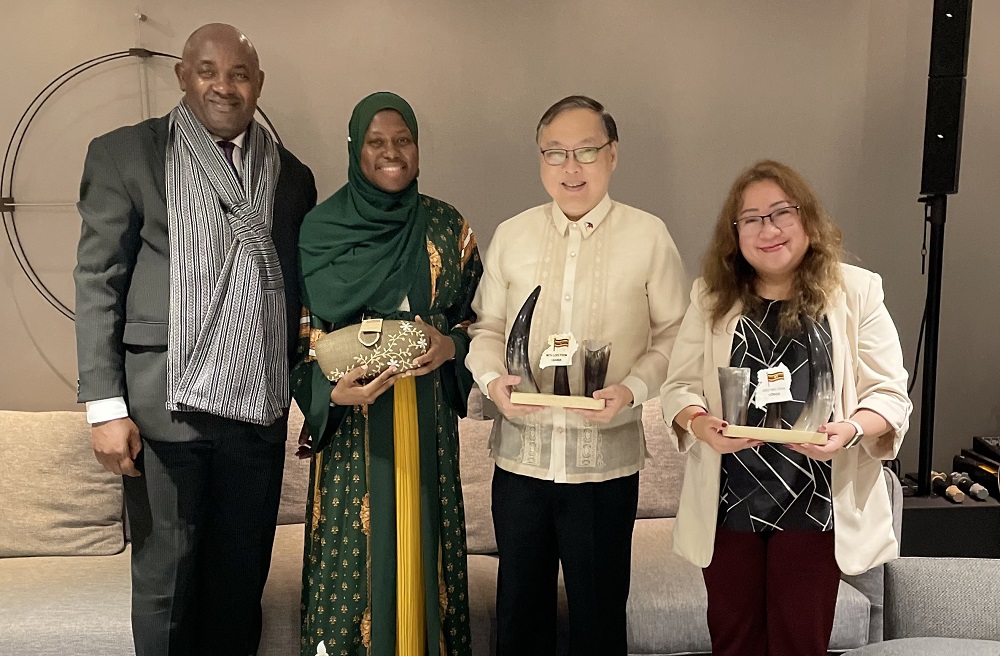The Philippines, renowned as a thriving hub for Information Technology and Business Processes Management (IT-BPM) services, recently welcomed Uganda’s Ministry of ICT and National Guidance for a week-long benchmarking mission from June 10-17.
This endeavor, organized by the Department of Information and Communications Technology (DICT), aimed to strengthen collaboration and knowledge sharing between the two nations and serve as an inspirational catalyst for Uganda’s own IT-BPM sector.
DICT secretary Ivan John Uy, in his efforts to deepen ties, engaged with minister Chris Baryomunsi of Uganda’s Ministry for Information and Communications Technology and National Guidance.
The exchange focused on sharing best practices and knowledge, demonstrating the Philippines’ commitment to help Uganda as they grow their IT-BPM industry.
Uy expressed enthusiasm about connecting with other countries, emphasizing the importance of active participation in building a better digital future.
Both the Philippines and Uganda were elected as members of the International Telecommunication Union (ITU) Council during the 2022 Plenipotentiary Conference in Bucharest, Romania, with the Philippines securing its fourth re-election since 2010.
As part of their knowledge-sharing journey, the Ugandan delegation participated in various sessions, site visits, and collaborative discussions with key stakeholders, government officials, industry experts, and practitioners who have significantly contributed to the development of the Philippines’ IT-BPM industry.
The delegation is composed of minister Chris Baryomunsi; Dr. Aminah Zawedde, the permanent secretary of the Ministry of ICT; Dr. William Bazeyo, chairperson of the Business Process Outsourcing Council; Davis Caxton Mandu Mwenyi, assistant commissioner for policy and planning of the Office of the President; Fred Ottonu, Director of Corporate Affairs of the Uganda Communications Commission; Silas Ngabirano, assistant commissioner for research and development of the Ministry of ICT; and Shirley Gladys Nakyejwe, senior ICT officer for research and development of the Ministry of ICT.
The Ugandan officials also met with Department of Foreign Affairs secretary Enrique Manalo and his team and expressed appreciation for DICT’s efforts to spread goodwill among nations by welcoming benchmarking exercises that highlight our country’s best practices.
The Philippines has firmly established itself as a global leader in the IT-BPM industry, contributing over 11% to the country’s gross domestic product and generating nearly $30 billion in annual revenue.
Baryomunsi acknowledged the challenges faced by Uganda, particularly concerning job scarcity for its young population.
He praised the Philippines for its successful promotion of business process outsourcing and highlighted the country’s technological advancements, ability to attract BPO companies, and the creation of an enabling environment.
Baryomunsi expressed gratitude for the stronger partnership and friendship fostered through the visit, highlighting that the average age of Uganda is 15 years old while the Philippines is 24 years old, and so both nations have a very young population which requires more jobs.
In line with its Digital Cities Program, the Philippines has been setting up viable investment hubs for ITBPM services, aiming to generate employment opportunities and revenue in rural areas.
DICT Undersecretary Jocelle Batapa-Sigue highlighted MAGIC (Make Academe, Government, and Industry Collaborate) framework to drive collaboration among stakeholders.
The department focuses on key parameters of the IT-BPM Scorecard, such as talent availability, infrastructure, cost, and business environment, to create an environment conducive to sector growth and competitiveness.
Throughout the learning sessions, Batapa-Sigue, who is currently the ITU councilor of the Philippines, emphasized the importance of community collaboration and government support in building a strong digital economy.
In addition to engaging with the DICT, the delegation explored various government offices, including the Department of Foreign Affairs, Cybercrime Investigation and Coordinating Center, Philippine Economic Zone Authority, Board of Investments, and the city government of Makati.
The delegation also met with the National ICT Confederation of the Philippines, Leechiu Property Consultants, the IT and Business Process Association of the Philippines, Microsourcing International, Digiworkz Carmona, DITO Telecommunity, and Asia Pacific College.
These engagements allowed the Ugandan delegates to gain insights into talent development programs, technology adoption, infrastructure, and policies related to IT-BPM.
Expressing gratitude on behalf of the Ugandan delegation, Fred Ottonu, director of corporate affairs for the Uganda Communications Commission, commended the Philippines for its warm reception and insightful presentations.
He highlighted the visit as an eye-opener, showcasing the Philippines’ ability to address industry needs and issues through its initiatives.
By leveraging the experiences and successes of the Philippines, Uganda is poised to harness the power of ICT and technology to create a future brimming with opportunities.
The nation is determined to carve its own path toward IT-BPM excellence, aiming to develop a thriving industry that uplifts its people and contributes to its overall development.
The partnership between the Philippines and Uganda serves as an inspiration for other nations, demonstrating the transformative impact of embracing IT-BPM services for economic growth and societal advancement.




